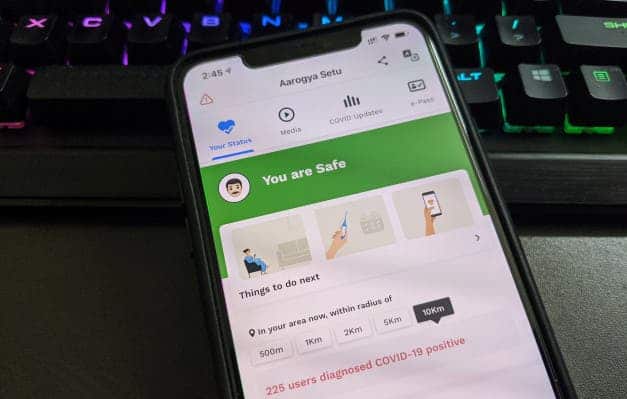Contact tracing apps are coming soon. It remains to be seen whether they will be successful in curbing the new cases and whether they will lead to privacy breaches, but they will soon become a common occurrence throughout many parts of the world.
In some places, however, they’ve been around for a while. Here’s what we’ve learned so far.

People might not download it
In order to be successful, any contact tracing app must be used by a substantial part of the population — if not enough people use it, then it doesn’t really make much sense. But will people download these apps?
The case of Singapore says ‘not really’. At the moment of this writing, less than 25% of the people in Singapore — a highly developed tech-savvy city-state — have downloaded the app supported by the country’s government. It’s worth reiterating: in a completely urbanized population that loves technology, only 1 in 4 people downloaded the app. It’s still early days, but Singapore’s app was the first developed, and it still hasn’t gained the desired traction.
In India, believed to be the second country in the world where such an app went live, there have been some 50 million downloads on Android phones (which dominate the market in India). That might seem like a lot, but it’s out of a 500 million smartphone userbase, in a country with a population of 1.3 billion. It can still be useful, particularly in areas where there is a high density of users, but these results aren’t very exciting.
Some countries (including Australia) have discussed the possibility of making such apps mandatory, but that has been outright rejected by Europe and is unlikely to be accepted in any Western country. Australia too has backtracked on its initial plan.
Success depends on trust in government
It’s worth noting that Singapore was not overly aggressive in promoting the app to its citizens. People chose to install it voluntarily, and that’s in large part because of the trust that citizens place in the government. Singapore ranks higher than most (if not all) developed countries when it comes to trusting authorities, with 67% of Singaporeans stating that they generally trust the government.
Meanwhile, in Australia, the government has a history of tech failures and data breaches, over 60% of people believe the people running the government are “crooked”. Similarly, people in the UK, the US, or most of the world really, have far less trust in the government and are therefore far less likely to download or use such an app. If we again use Singapore as a barometer, can we realistically expect a majority of people downloading and using such an app?
Not running in the background is a problem
Technological issues are not a minor challenge when it comes to contact apps and one particular problem stands out: whether or not the app works in the background. This has been a particular problem with Apple devices, due to the software architecture.
Apple does not permit iPhone apps running in the background to access Bluetooth, for security reasons, and if the app isn’t allowed to run in the background, then it will be a major battery drain, which is not sustainable. It’s a problem to which no solution has been presented so far, though it’s likely that the new joint Apple-Google app will provide a workaround to the problem.
Privacy concerns are very much justified
Israel was also one of the first countries to develop a contact tracing app. The police would track the GPS data of quarantined people to make sure they respect the quarantine.
Although that has since been halted, there has been much criticism regarding Israel’s breach of privacy and what that might mean for the planet’s long-term surveillance.
We’ve seen in the past that having a database with citizen-compiled data is not a good idea and can be used for nefarious purposes. As many have highlighted, the decisions we make in this period will haunt us for many years to come, and paving the way for a totalitarian state must be avoided.
Bluetooth-based apps are more privacy-friendly than those which track GPS or phone data, but they need to work in the background, as mentioned above.
Alone, contact tracing apps won’t save us
This once again comes back, in part, to how many people download the app. If not enough people download it, then we can’t really expect to make any progress. But even in communities where user density is high, there is no major drop in cases due to contact tracing apps.
Without testing and without social distancing, the number of cases will grow again. Contact tracing apps are just a part of a much larger puzzle, and we don’t really know for sure how much of a role they play. We’ve seen in the case of Germany that “manual” contact tracing, done by actual people, can still be very effective — but it takes a huge amount of resources and work and is unrealistic in most places. Contact tracing apps offer lower-quality results, but they can cover a much larger percentage of the population.
We might learn many things about the disease from tracing apps
In addition to helping limit the spread of the disease, these apps might also help us understand how the virus spreads. A recent study published in Taiwan shows interesting contagion trends about the disease.
For instance, the disease seems to spread most before or immediately after the onset of symptoms. This suggests that finding and isolating symptomatic patients alone may not suffice to contain the epidemic, and more generalized measures may be required, such as social distancing.






